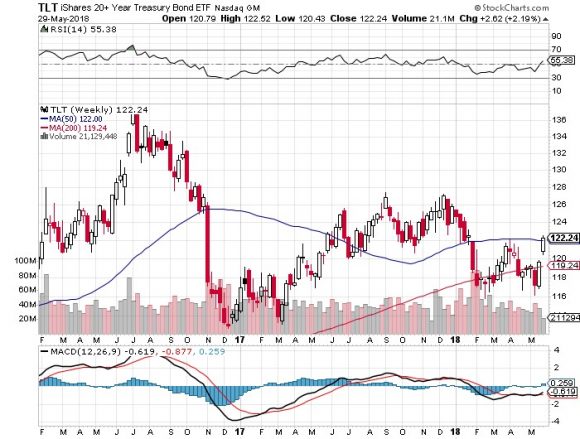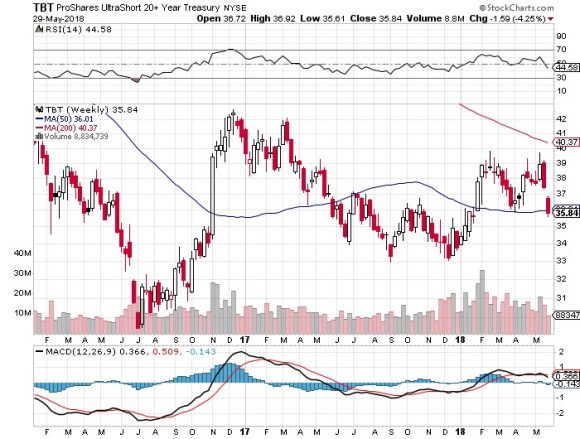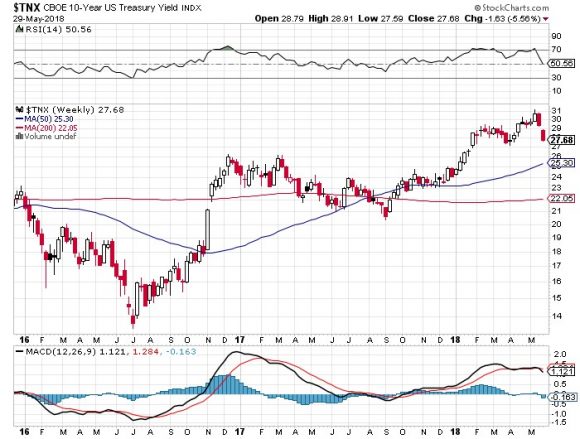Welcome to the Deflationary Century
Ignore the lessons of history, and the cost to your portfolio will be great. Especially if you are a bond trader!
Meet deflation, up-front and ugly.
If you looked at a chart for data from the United States, consumer prices are showing a feeble 2.5% YOY price gain. This is slightly above the Federal Reserve's own 2% annual inflation target, with most of the recent gains coming from rising oil prices.
And here's the rub. Wage growth, which accounts for 70% of the inflation calculation, has been practically nil. So, don't expect inflation to rise much from here, despite an unemployment rate at a 17-year low.
We are not just having a deflationary year or decade. We may be having a deflationary century.
If so, it will not be the first one.
The 19th century saw continuously falling prices as well. Read the financial history of the United States, and it is beset with continuous stock market crashes, economic crisis, and liquidity shortages.
The union movement sprung largely from the need to put a break on falling wages created by perennial labor oversupply and sub living wages.
Enjoy riding the New York subway? Workers paid 10 cents an hour built it 120 years ago. It couldn't be constructed today, as other more modern cities have discovered. The cost would be wildly prohibitive.
The causes of 19th century price collapses were easy to discern. A technology boom sparked an industrial revolution that reduced the labor content of end products by 10 to hundredfold.
Instead of employing 100 women for a day to make 100 spools of thread, a single man operating a machine could do the job in an hour.
The dramatic productivity gains swept through then developing economies like a hurricane. The jump from steam to electric power during the last quarter of the century took manufacturing gains a quantum leap forward.
If any of this sounds familiar, it is because we are now seeing a repeat of the exact same impact of accelerating technology. Machines and software are replacing human workers faster than their ability to retrain for new professions.
This is why there has been no net gain in middle class wages for the past 30 years. It is the cause of the structural high U-6 "discouraged workers" employment rate, as well as the millions of Millennials still living in parents' basements.
To the above add the huge advances now being made in healthcare, biotechnology, genetic engineering, DNA-based computing, and big data solutions to problems.
If all the major diseases in the world were wiped out - a probability within 10 years - how many health care jobs would that destroy?
Probably tens of millions.
So the deflation that we have been suffering in recent years isn't likely to end any time soon. If fact, it is just getting started.
Why am I interested in this issue? Of course, I always enjoy analyzing and predicting the far future, using the unfolding of the last half-century as my guide. Then I have to live long enough to see if I'm right.
I did nail the rise of eight-track tapes over six-track ones, the victory of VHS over Betamax, the ascendance of Microsoft operating systems over OS2, and then the conquest of Apple over Microsoft. So, I have a pretty good track record on this front.
For bond traders especially, there are far-reaching consequences of a deflationary century. It means that there will be no bond market crash, as many are predicting, just a slow grind up in long-term interest rates instead.
Amazingly, the top in rates in the coming cycle may only reach the bottom of past cycles, around 3% for 10-year Treasury bonds (TLT), (TBT).
The soonest that we could possibly see real wage rises will be when a generational demographic labor shortage kicks in during the 2020s. That could be a decade off.
I say this not as a casual observer, buy as a trader who is constantly active in an entire range of debt instruments.
So, the bottom line here is that there is additional room for bond prices to fall and yields to rise is pretty limited. But not by that much, given historical comparisons. Think of singles, and not home runs.
It really will just be a trade. Thought you'd like to know.
Yup, This Will Be a Real Job Killer










